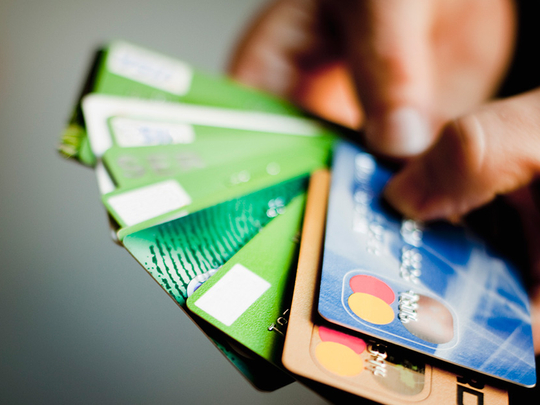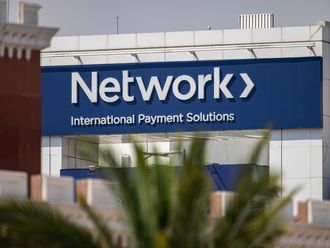
Living in the UAE, it’s easy to let your credit card debt slip out of control. According to research firm Euromonitor International, there were almost 4.4 million credit cards in use in the UAE in 2014, compared with 1.3 million in 2005, with outstanding debt of nearly $5 billion - just over half of total outstanding GCC credit card debt. Credit cards offer instant gratification, allowing you to buy things you can’t afford right away and pay for them later.
If your financial health is at stake, swiping away until the cards on fire is probably not the best way to go. Despite your good intentions, one or two purchases can snowball from a small balance to a heap of debt.
No matter how much credit card debt you have, it’s important to face it and make a plan to pay it off for good. Here are five signs your credit card debt is out of control and tips for regaining control of your finances.
1. State of denial
Neglecting your bills, dodging calls and refraining from discussing your spending with your significant other are clues you may be in denial about your debt. But ignoring it will only make your debt grow: you will continue to accrue interest and late payment fees.
Tip: List down each of your debts, along with due dates, minimum payments, and interest rates and pay the minimums on each of them. Start paying down your debts by prioritising your cards, starting with the one with the highest interest rate.
2. Repayment unclear
If you are the type that says “I’ll be debt-free someday”, then you probably suffer from a lack of clarity on time needed to pay off your debt pile. A specific payoff date is important because it forces you to devote your time and resources to meet a deadline.
Tip: Use a debt payoff calculator to find out how long it will take you to get rid of your debt. If the date seems too far away, evaluate your income and expenses and start trimming all the unnecessary costs. The more cutbacks you can make on your outgoings, the more you will be able to put towards paying off whatever debt you have.
3. Balance transfer
If you are the type that constantly shifts your debt from one card to another without making any progress on reducing it, this could be a sign of something bigger. In the UAE, a lot of issuers offer credit cards with balance transfer but moving a balance isn’t the same as paying it off. It only helps if you pay down the debt rather then spending again.
Tip: If you have a balance transfer card with a lower interest rate, divide your balance by the number of months until the offer expires. That’s your new monthly payment.
4. No savings
You can’t save much if all your savings goes toward credit- card debt payments. But it’s important to make room in your monthly budget to save, especially if you don’t have an emergency fund to keep you from sliding back into debt if an unexpected expense arises.
Tip: Aim to save part of each pay cheque, even if you have debt. If you don’t have an emergency fund, set your first savings goal at Dh1,000 and make a plan to get there as quickly as you can.
5. Anxiety
This is a clear red flag. If your debt keeps you up at night or if it’s affecting your professional or family life, then you need to face reality and not ignore the situation. Seek professional advice and map out a clear plan of action.
Tip: If your debt load is too big to pay off, you may want to consider consolidation. Consolidating your debts, or refinancing as the banks call it, allows you to merge all your debts into one loan. Whether it is outstanding car or personal loans or maxed out credit cards, a bank will offer to merge these debts into one balance that you can then pay off with them. There are many banks in the UAE that have loans set up for debt consolidation.












